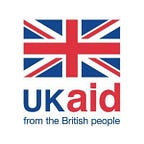Minimum Standards for Age and Disability Inclusion in Humanitarian Action
With thanks to HelpAge International for contributing this article which was initially published in the DFID Disability Newsletter
Despite an increasing focus on protection, the humanitarian system is still not adequately identifying and addressing the needs of older people and people with disabilities. Both groups continue to face significant barriers to accessing appropriate assistance and protection.
The ‘leave no-one behind’ agenda of the Global Goals presents a huge opportunity to raise the profile of older people and people with disabilities in humanitarian contexts where they make up a greater proportion of the affected population than is often assumed. In 2014, HelpAge International and Handicap International found that 22% of Syrian refugees in Jordan and Lebanon had some kind of impairment rising to 70% among older people.
Earlier this year, the Age and Disability Capacity Building Programme (ADCAP), produced a first set of Minimum Standards for Age and Disability Inclusion in Humanitarian Action. Drawing on existing guidance and complementing the Sphere Handbook and Core Humanitarian Standard, the Minimum Standards have been published in pilot form and will be reviewed on the basis of ongoing consultation and field testing. They are intended for use primarily by ‘mainstream’ humanitarian organisations, and contain examples of inclusive practice and references to further technical guidance in all humanitarian sectors.
The ADCAP project is funded by the DFID Disasters and Emergencies Preparedness Programme though the START network, and represents a significant opportunity to help take forward DFID’s commitments to inclusive humanitarian programming within its Disability Framework.
Paul Valentin, International Director at Christian Aid, added: “The standards give practical support and advice on how to adapt emergency responses to meet the needs and build on the capacities of those who are often left out in disasters.The clear guidance and format gives extra depth to the core Humanitarian Standards and will go a long way to help us support our partners in inclusive programming.”
Dr M Ashmawey, Chief Executive Officer of Islamic Relief, also praised the document: “This report will add value to the response and guide humanitarian workers to fully achieve impartiality and humanitarian principles.”
ADCAP is an initiative of the Age and Disability Consortium, a group of seven agencies working to promote age and disability inclusive humanitarian assistance: CBM, DisasterReady.org, Handicap International, HelpAge International, IFRC, Oxford Brookes University and RedR UK. The programme is funded by DFID and the United States Agency for International Development.
The ADCAP programme is also developing a series of e-learning modules (the first two introductory modules on ageing and disability are now available), deliver webinars and publish a two-day training package on age and disability inclusion.
Written by Ivan Kent — HelpAge International
Further Information
- Sign up for the DFID Disability Newsletter for quarterly updates on best practice, evidence and news
- Follow DFID Inclusive Societies Department on Twitter DFID Inclusive Societies
- Read the DFID Disability Framework
- Find out more about how to disaggregate disability data
Twitter: @HelpAge
